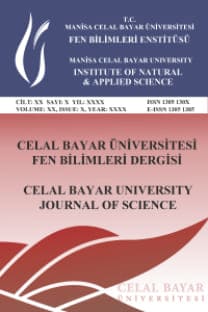In Vitro Propagation of Wetland Medicinal Plant Lythrum salicaria L.
The aim of this experiment is to develop a protocol to establish the in vitro propagation potential of Lythrum salicaria L (purple loosestrife). Seeds of L. salicaria were germinated and grown in Murashige Skoog (MS) medium for 30 days. At the end of 30 days, shoot tips of L. salicaria were cultured on MS medium supplemented with different combinations and concentrations of 6-benzylaminopurine (BAP; 1, 2 and 3 mg/L) and 1-naphthaleneacetic acid (NAA; 0, 0.1 and 0.5 mg/L). Regenerated shoots were transferred to MS supplemented with varying concentrations of different auxins: NAA (0.5 and 1 mg/L) and indole-3-butyric acid (IBA; 0.5 and 1.0 mg/L) for rooting. Among the cytokinins investigated, BAP indicated the best response to initiate shoot elongation and multiple shoot formation alone. The highest number of shoot per explant (37±3.38) was obtained in MS medium with 1 mg/L BAP. Although, the highest shoot length (3.1 cm ± 0.48) was found on medium with 1 mg/L BAP+0.5 mg/L NAA, there were no statistically differences among all types of medium. Percentage of rooting, shoot length and root length were altered significantly with different concentrations of NAA and IBA. Thus, shoot length (9.5 cm±0.46), root length (4.1 cm±0.13) and the percentage of rooting (100%) increased significantly with a concentration of 1 mg/L NAA. It was concluded that MS medium with 1 mg/L NAA has been superior for root development compared to other hormone concentrations.
Keywords:
auxins, cytokinins purple loosestrife, rooting, tissue culture,
___
- 1. Hussain, A, Qarshi, I.A, Nazir, H, Ullah, I, Plant Tissue Culture: Current Status and Opportunities. In: Leva, A, Rinaldi, L.M.R (eds) Recent Advances in Plant in vitro Culture, Intech, 2012, pp 1-28.
- 2. Sarasan, V, Cripps, R, Ramsay, M.M, Atherton, C, McMichen, M, Prendergast, G, Rowntree, J.K, Conservation in vitro of threatened plants-Progress in the past decade, In Vitro Cellular & Developmental Biology Plant, 2006, 42, 206-214.
- 3. Humadi, S.S, Istudor, V, Lythrum salicaria (purple loosestrife). Medicinal use, extraction and identification of its total phenolic compounds, Farmacia, 2009, 57(2), 192-200.
- 4. Mal, T.K, Uveges, J.L, Turk, K.W, Fluctuating asymmetry as an ecological indicator of heavy metal stress in Lythrum salicaria, Ecological Indicators, 2002, 1, 189-195.
- 5. Nicholls, A.M, Mal, T.K, Effects of lead and copper exposure on growth of an invasive weed, Lythrum salicaria L. (Purple Loosestrife), The Ohio Journal of Science, 2003, 103(5), 129-133.
- 6. Sun, H, Wang, Z, Gao, P, Liu, P, Selection of aquatic plants for phytoremediation of heavy metal in electroplate wastewater, Acta Physiologiae Plantarum, 2013, 35(2), 355-364.
- 7. Turker, A.U, Yucesan, B, Gurel, E, An efficient in vitro regeneration system for Lythrum salicaria, Biologia Plantarum, 2009, 53(4), 750-754.
- 8. Murashige, T, Skoog, F, A revised medium for rapid growth and bioassays with tobacco tissue cultures, Physiologia Plantarum, 1962, 15, 473-497.
- 9. JMP SAS. SAS Institute Inc. USA, 1995.
- 10. Rout G.R, Effect of cytokinins and auxins on micropropagation of Clitoria ternatea L., Biology Letters, 2004, 41(1), 21-26.
- 11. Nas, M.N, Read, P.E, A hypothesis for the development of a defined tissue culture medium of higher plants and micropropagation of hazelnuts, Scientia Horticulturae, 2004, 101, 189-200.
- 12. Waoo, A.A, Khare, S, Ganguli, S, In-vitro propagation of Datura innoxia from nodal and shoot tip explants, World Journal of Environmental Engineering, 2013, 1(1), 1-4.
- 13. Akın, B, Kocaçalışkan, İ, Güleryüz, G, Micropropagation of Erodium sibthorpianum subsp. sibthorpianum, an endemic threatened species of Uludağ Mountain (Bursa-Turkey), Turkish Journal of Botany, 2014, 38, 148-155.
- 14. Arab, M.M, Yadollahi, A, Shojaeiyan, A, Shokri, S, Ghojah, S.M, Effects of nutrient media, different cytokinin types and their concentrations on in vitro multiplication of G N15 (hybrid of almond peach) vegetative rootstock, Journal of Genetic Engineering and Biotechnology, 2014, 12, 81-87.
- 15. Mehta, J, Ansari, R, Syedy, M, Khan, S, Sharma, S, Gupta, N, Rathore, R, Vaishnav, K, An effective method for high frequency multiple shoots regeneration and callus induction of Bacopa monnieri (L.) Pennel: An important medicinal plant, Asian Journal of Plant Science and Research, 2012, 2(5), 620-626.
- 16. Otroshya, M, Khalilia, Z, Ebrahimi, M.A, Nekoui, M.K, Moradi, K, Effect of growth regulators and explant on plant regeneration of Solanum lycopersicum L. var. cerasiforme, Russian Agricultural Sciences, 2013, 39(3), 226–235.
- 17. Sauer, M, Robert, S, Kleine-Vehn, J, Auxin: simply complicated, Journal of Experimental Botany, 2013, 64(9), 2565–2577.
- 18. Caspar, T, Faivre-Rampant, O, Kevers, C, Dommes, J, Hausman, J.-F, Auxins in the biology of roots. In: Waisel, Y, Eshel, A, Kafkafi, U (eds) Plant roots: The hidden half, 3rd edn. Marcel Dekker, Inc. New York, 2002, pp 576-608.
- 19. Resende, C.F, Bianchetti, R.E, Oliveira A.M, Braga V.F, Peixoto P.H.P, In vitro propagation and acclimatization of Lippia rotundifolia, an endemic species of Brazilian Campos Rupestres, Revista Ciência Agronômica, 2015, 46(3), 582-589.
- 20. Tolera, B, Effects of naphthalene acetic acid (NAA) and indole-3-butyric acid (IBA) on in vitro rooting of sugarcane (Saccharum officinarum L.) micro-shoots, Journal of Biotechnology & Biomaterials, 2016, 6, 1-5.
- ISSN: 1305-130X
- Başlangıç: 2005
- Yayıncı: Manisa Celal Bayar Üniversitesi Fen Bilimleri Enstitüsü
Sayıdaki Diğer Makaleler
Some Null Quaternionic Curves in Minkowski Spaces
Synthesis and Usage of Active Modified Zn-Zeolite as an Antibacterial Agent
Mustafa ATEŞ, Ayşegül EKMEKÇİ KÖRLÜ, Candan AKCA
In Vitro Propagation of Wetland Medicinal Plant Lythrum salicaria L.
Burcu ÇETİN, Nüket AKANIL BİNGÖL, Betül AKIN
Investigation of Phase Transitions in Nematic Liquid Crystals by Fractional Calculation
Müjde DURUKAN GÜLTEPE, Zekai TEK
Different Extraction Techniques on the Characteristic Properties of Valonea Tannin
Ersin ONEM, Ali YORGANCIOĞLU, Onur YILMAZ
Esra İMAMOĞLU, İrem DENİZ, Zeliha DEMİREL, Meltem CONK DALAY
